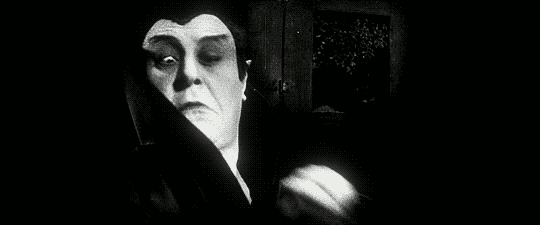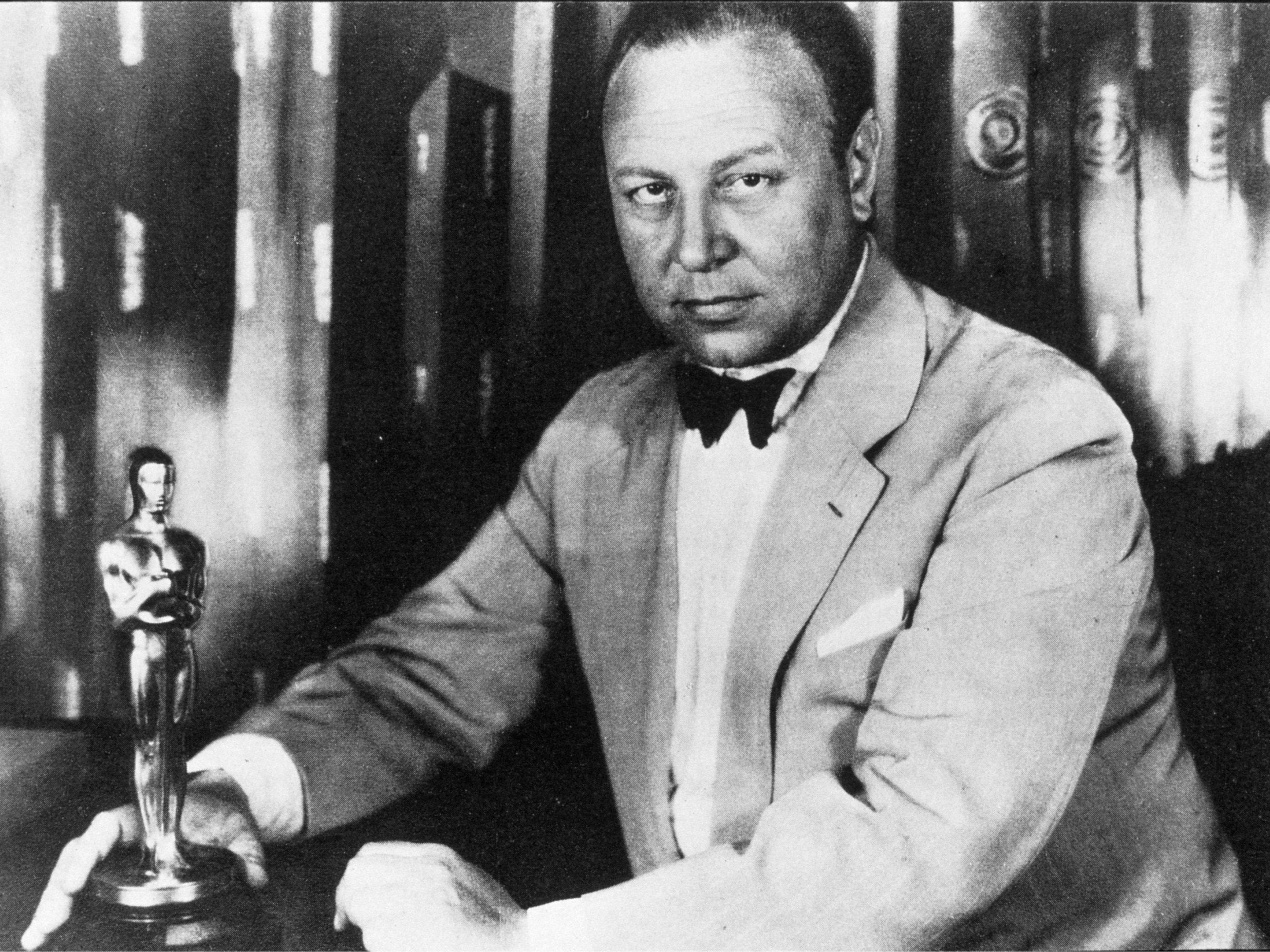A profile of Emil Jannings
Hoje Emil
Jannings é mais lembrado por ter sido o primeiro ganhador do Oscar de Melhor
Ator, em 1929. Mas Jannings foi um homem de muitas honras: contracenou com Pola
Negri, Marlene Dietrich, Conrad Veidt e Lya De Putti. Foi dirigido por Josef
von Sternberg, Ernst Lubitsch, Paul Leni, King Vidor e F. W. Murnau. Chegou a
ser considerado o melhor intérprete do mundo. Sua queda foi vertiginosa e muito
triste por ter se ligado à pior política do século XX. Mas os verdadeiros fãs
do bom cinema saberão apreciar o talento deste homem inconfundível.
Today Emil
Jannings is better remembered as the first winner of the Best Actor Oscar, in
1929. But Jannings was a man of many honors: he worked alongside Pola Negri,
Marlene Dietrich, Conrad Veidt and Lya De Putti. He was directed by Josef von
Sternberg, Ernst Lubitsch, Paul Leni, King Vidor and F.W. Murnau. He was even
considered the best actor of the world. But his fall was huge and sad because
he chose the side of the worst force of the 20th century. But the true fans of
good cinema will know how to talk about the talents of this remarkable man.
Começamos
destruindo um mito: Jannings não era alemão. Theodor Friedrich Emil Janenz
nasceu na Suíça em 1884. Pouco encontrei sobre sua infância e juventude, a não
ser a informação de que seu pai era americano. Aos 30 anos, em 1914, estreou no
cinema e em 1918 já estava com Pola Negri e Ernst Lubitsch trabalhando em
“Olhos da Múmia”, em que interpreta um árabe vingativo. Sua carreira oscilou
entre papéis de vítima e de vilão.
We start by
destroying a myth: Jannings wasn’t German. Theodor Friedrich Emil Janenz was
born in Switzerland in 1884. I could not find much about his early years,
except the fact that his father was American. At age 30, in 1914, hem ade his film
debut and in 1918 he was already with Pola Negri and Ernst Lubitsch working on “The
Eyes of the Mummy”, in which he plays a vindictive Arab man. His career
alternated roles as a villain and a victim.
Com “A Última Gargalhada” (1924), F.
W. Murnau provou que o bom cinema não dispensava apenas diálogos, mas toda e
qualquer palavra. Porque os únicos escritos em quase 90 minutos de projeção são
o título do filme, o nome do diretor e do ator principal. É um filme
psicodélico e cheio de significado, que parte da simples figura de um porteiro
de hotel cuja profissão, única glória e alegria, lhe é tirada.
With “The Last Laugh” (1924), F.W. Murnau
proved that good cinema didn’t need dialogues nor any written world. Because
the only words in almost 90 minutes are the title of the film and the names of
the director ando f the main actor. This is a psychodelic movie full of
meaning, that brings the journey of a hotel clerk whose profession, his only
glory and joy, is taken from him.
A biógrafa
de Rin Tin Tin (porque, sim, o astro canino tinha uma biógrafa) afirma que foi
Rin Tin Tin o ganhador do primeiro Oscar de Melhor Ator, em 1929. A maioria dos
votos era do cachorro mais popular das telas. Entretanto, receando que, se o
prêmio recém-criado fosse entregue a um astro de quatro patas, o Oscar nunca
seria levado a sério, a Academia entregou o troféu ao segundo colocado, este humano:
Emil Jannings. Para Rin Tin Tin sobrou a honra de morrer no colo de Jean Harlow
(quem não iria querer morrer naquele colo?).
Rin Tin Tin’s
biographer (because, yes, the dog star had a biographer) claims that Rin Tin Tin
was the winner of the Best Actor Oscar, in 1929. Most votes were for the most
popular dog on the screen. However, feeling that, if the brand new award was
given to a four-legged star, the Oscar would never be taken seriously, the
Academy gave the award to the second place, a human: Emil Jannings. For Rin Tin
Tin the glory that was left was to die on Jean Harlow’s lap (and who wouldn’t
want to that on that lap?).
Mas
Jannings mereceu o Oscar. Posso ser parcial ao falar isso, porque “A Última
Ordem / The Last Command” (1928) é um dos meus filmes mudos favoritos, mas a
atuação de Jannings é ESPETACULAR. Uma imagem vale mais que mil palavras, e nem
três trilhões de artigos como este seriam suficientes para descrever o real
valor deste filme e da atuação de seu protagonista. Um ex-guarda do czar, agora
radicado em Hollywood, tem a oportunidade de reviver seu passado ao trabalhar
como extra em um filme sobre a Rússia.
But
Jannings deserved the award. I may be biased to say that, because “The Last
Command” (1928) is one of my favorite silente movies, but Jannings’s
performance in SPECTACULAR. An image is worth more than a thousand words, but
not even three trillions of articles like this one would be enough to describe
the real value of this film and its lead’s performance. A former Czarist guard,
now in Hollywood, has the chance to relive his past while working as an extra
in a film about Russia.
Entretanto,
Jannings não ganhou o Oscar apenas por sua atuação primorosa em “A Última
Ordem”. No primeiro ano do prêmio, a Academia permitiu que a indicação fosse
feita considerando o trabalho do ator / atriz em múltiplos filmes do ano
anterior. E aqui entra uma curiosidade triste: Jannings é o único ator já
indicado ao Oscar cujo filme que lhe valeu a indicação (e a vitória) está
perdido: “Tortura da Carne / The Way of All Flesh” (1927). Mas há quem dê
esperanças de existir uma cópia dele por aí.
However,
Jannings didn’t win the Oscar only for his great performance in “The Last
Command”. In the first year of the award, the Academy allowed the nomination to
be made considering the perfomer’s work in multiple films from the previous year.
And here comes a sad curiosity: Jannings is the only actor nominated for an
Oscar whose nominated film is lost: “The Way of All Flesh” (1927). But there
are those who give us hope that a copy still exists somewhere.
Falando em
filmes perdidos, Jannings também foi a estrela de “O Patriota” (1928), dirigido
por King Vidor e só pelo trailer que sobrou dá para perceber que era
maravilhoso. Tomara que seja encontrada alguma cópia dele nos porões de algum
lugar do mundo!
Since we’re
talking about lost movies, Jannings was also the star of “The Patriot” (1928),
directed by King Vidor and whose trailer is enough to let us know that it was
great. We can only hope that a copy of it is found in a basement somewhere!
A era do
cinema mudo acabava e Jannings já colecionava glórias e elogios. Ainda viria
seu filme mais famoso, e sua ainda mais famosa derrocada. Com a chegada do som
em Hollywood, ele voltou para a Alemanha. Ele e Von Sternberg, diretor de “A
Última Ordem”, se reuniram para mais uma obra-prima: “O Anjo Azul”, de 1930, em
que Jannings interpreta o professor Rath, que se apaixona pela cantora Lola
Lola (Marlene Dietrich), uma femme fatale
primitiva.
The silent movie era was ending and Jannings already collected glories and compliments.
His most famous film was yet to come, and his even more famous downfall. With
sound coming to Hollywood, he went back to Germany. He and Vn Sternberg, the director
of “The Last Command”, reunited for another masterpiece: “The Blue Angel”, from
1930, in which Jannings plays professor Rath, who falls in love with the singer
Lola Lola (Marlene Dietrich), a primitive femme fatale.
“O Anjo Azul” foi proibido quando os nazistas
chegaram ao poderem 1933. Marlene Dietrich sairia definitivamente da Alemanha.
Josef von Sternberg, nascido na Áustria, também não mais pisaria em solo
alemão. E aqui Jannings cometeu seu grande erro: seguiu trabalhando para o
cinema de propaganda nazista, tendo a seu lado, por exemplo, a ex-esposa de
Fritz Lang, Thea von Harbou.
“The Blue
Angel” was banned when the Nazis came to power in 1933. Marlen Dietrich would
once and for all leave Germany. Josef von Sternberg, born in Austria, also
would never again set foot in German soil. And here Jannings made his big
mistake: kept working for Nazi propaganda films, having alongside him, for
instance, Fritz Lang’s ex, The von Harbou.
Emil
Jannings morreu em 2 de janeiro de 1950. Nunca conseguiu se livrar da mácula
que foi ter trabalhado para o Terceiro Reich. Entretanto, seus filmes estão aí
(os que sobraram) para provar que o talento de Emil Jannings foi muito maior
que seu maior erro.
Emil
Jannings died on January 2nd, 1950. He would never see himself free of the mark
gained when he worked for the Third Reich. Nevertheless, his films are there
(some of them) to prove that Emil Jannings’s talento was bigger than his
biggest mistake.




7 comments:
Adorei conhecê-lo melhor, excelente post ;)
Faroeste Manolo
Página Facebook
I honestly had no prior knowledge of Emil Jannings before reading your post. Very interesting. And to imagine 'winning' your Oscar because of 'losing' to a dog? Seems almost bittersweet. Fun, informative post. Thanks again for joining our blogathon, Le!!
Olá! Olha eu aqui novamente te convidando para nossa tradicional blogagem coletiva cinéfila, o Bolão do Oscar do "DVD, Sofá e Pipoca". Não deixe de dar seus palpites, as regras estão aqui!
Boa sorte!
Fabiane Bastos, em nome das Blogueiras do Sofá!
A very fine actor who always impresses me, even if I don't particularly enjoy the film (Faust). "The Last Command" is magnificent. Thank you for the interesting background on this controversial figure.
muito bacana este post... curiosidades bem interessantes sobre esse importante ator e sobre o Oscar.
o único filme que assisti dele foi 'a última gargalhada', uma experiência inesquecível.
e essa história de filmes perdidos? tomara que sejam encontrados! é praticamente uma caça ao tesouro.
Menina, seu blogue está muito bom. Cheio de informações valiosas. Bjs
Magnífica postagem! Vai me ajudar na que escreverei sobre Jannings. Sou fã dele. Tenho 10 filmes seus e são todos incríveis. Magnífico sempre em qualquer papel, destaco seu vigor em Anna Bolena (1920), Quo Vadis (1925), Varieté – A Tragédia de um Artista (1925) e Fausto (1926). Como você, amo A Última Ordem (1928). Obra-prima!
Obrigado por algumas informações que desconhecia: o Oscar para Rin Tin Tin (será real? Que doideira!), o mesmo morrendo no colo da divina Jean Harlow e o desaparecimento de Tortura da Carne (1927) e “O Patriota” (1928).
Embora tenha manchado sua biografia com o envolvimento nazista, Jannings até 1945 não parou de filmar na Alemanha, em grandes produções. Sou louco para vê-las! Li também que o ingles de Jannings era ruim, além do carregado sotaque germânico, dificultando a possibilidade de uma carreira em Hollywood no cinema falado.
Post a Comment